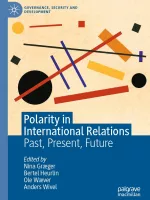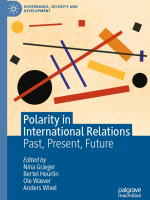The Nexus of Systemic Power and Identity
A new volume has been published on `polarity´, one of the foundational concepts of the International Relations (IR) discipline. Defined as the relative distribution of capabilities among the great powers in the international system (i.e., unipolarity, bipolarity, multipolarity or non-polarity), the concept of polarity plays a critical role in ongoing IR debates about international order, great power competition, armed conflict, and structural change in the system.
Among the contributors to the new volume is DIIS Senior Researcher Andreas B. Forsby, who has written a chapter entitled “The Nexus of Systemic Power and Identity: Structural Variations of the US-China Great Power Rivalry”. In the chapter, he reformulates the polarity concept to include structural logics of both power and identity, thereby outlining a new theoretical framework that enables him to re-examine the deepening great power competition between Beijing and Washington.
Against the backdrop of China’s continued rise and the erosion of US unipolarity, relations between Washington and Beijing are increasingly being framed as a new Cold War struggle even if a defining characteristic of the original Cold War is still missing, namely system-wide ideological competition. Meanwhile, the dominant IR theory on great power conflict, structural realism, seems ill-equipped to deal with any such ideational component given the theory’s rather narrow materialist conception of systemic structure.
Taking its point of departure in Social Identity Theory, the chapter develops a new structural logic of identity that allows us to theorize systemic ideological competition as the relative distribution of mutually incompatible universalistic identities in the state system. Further, it is suggested how to combine the structural logic of identity with that of power (polarity) in order to devise a new framework for explaining the overall security practices of states. The potential utility of the framework is demonstrated by using the US-China great power rivalry as an illustrative case.
DIIS Experts



